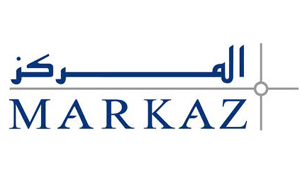Markaz: Second Half of 2011 to Be Neutral For GCC Markets
Kuwait Financial Centre has released a review of its “What to expect in 2011” report in which it adopted a rather neutral view of the GCC markets for the second part of 2011.

Kuwait Financial Centre (Markaz) has issued the semiannual review of its “What to expect in 2011” report in which it adopted a rather neutral view of the GCC markets for the second half of 2011 mainly due to muted earnings growth and weakness in market liquidity and activity.
The political turmoil which swept the region at the beginning of the year brought down all markets and proved a drag on earnings.
The political turmoil which swept the region at the beginning of the year brought down all markets and proved a drag on earnings. Additionally, various corporate issues (in terms of M&A, debt restructuring etc) in addition to some regulatory and market developments (MSCI not upgrading of UAE and Qatari markets etc) have dampened investor sentiment across the board.
The outlook on Oman has been downgraded from positive to neutral due to the political situation which impacted corporate earnings, sentiment and geopolitical perception. Finally, Markaz gave a neutral outlook on Bahrain, but verging on negative due to weakened corporate earnings outlook in addition to a less than favorable geopolitical environment, which is negatively impacting investor sentiment and market liquidity.
As for Kuwait, Markaz downgraded the outlook for Kuwait from positive to neutral for the remainder of 2011, due to poor market conditions, more muted earnings growth and continued weakness in market liquidity. Fiscal and current balances are expected to remain the highest in the Gulf, at 23% and 37% of GDP, respectively, in 2011. Corporate earnings in the first quarter of 2011 were fairly positive. However, Markaz expects full year 2011 results to decline by 3% relative to last year.
With respect to the UAE, Markaz has segregated the UAE outlook and is positive on Abu Dhabi while being neutral on Dubai. The economy grew at an estimated 2.4% in 2010 and is expected to grow at 3.3% in 2011. The geopolitical and regulatory arenas are considered to be stable. However, lack of liquidity remains a problem as value traded in the UAE continues to dry up, as per the report. Corporate earnings are expected to rebound in 2011 after the real estate sector suffered a significant loss in 2010.
With respect to Saudi Arabia, Markaz maintained a neutral outlook for the second half of 2011 due to moderate economic activity in addition to moderate earnings growth. Positive factors arise in valuation and market liquidity which has been picking up. Corporate earnings are expected to be flat in 2011 versus a 30% growth in 2010. Support is expected to come from the banking sector, which is expected to grow at 10% in 2011, while slower growth in telecoms may be a drag on overall earnings. Market liquidity is up in the Kingdom. Value traded came in at US$ 155 billion for the first half 2011, a 28% year-on-year growth, which would translate to over US$ 300 billion if the pace keeps up to the end of the year, according to the report.
The report remained positive on Qatar, owing to its high economic prospects, healthy banking sector and heavy government support in addition to increasing liquidity. The economy is expected to show another year of double-digit growth, boosted to a forecasted 20% in 2011. The net profits reached US$ 2.4 billion over the first quarter of 2011, a 23% year-on-year growth. Corporate earnings are expected to continue growing at a healthy pace to US$ 8.5 billion by the end of the year, which would translate to an annual growth of 12%. Bucking the GCC trend, Qatar value traded grew in the first half of 2011 to US$ 12.95 billion, a 33% year-on-year growth, as per Markaz.
The article above has been published as a part of Bank Audi`s MENA Weekly Monitor for Week 32 of 2011. It can be accessed via Internet at the following web address : http://www.banqueaudi.com